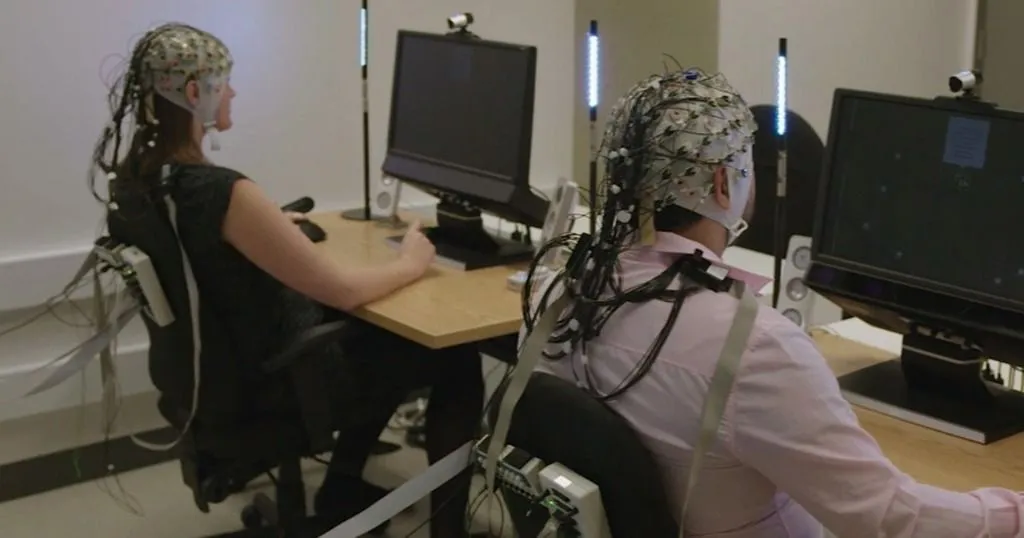Blog posts tagged with eye tracking
21 Oct
human behavior research
Research Methods (Human)
Eye tracking without the expensive hardware: powered by FaceReader
Ever wondered what really catches someone’s eye? FaceReader now includes webcam-based eye tracking, giving you powerful insights into where people look, how they feel, and what drives their decisions. No extra hardware required.

13 Dec
human behavior research
Multimodal
What is cognitive load, and how does it help us understand human behavior?
By exploring cognitive load, researchers gain insights into how people process information, respond emotionally, and manage decision-making. How cognitive load and one of its most reliable indicators, pupil dilation, is crucial in human behavior research.

15 Oct
human behavior research
Psychology
Understanding infants’ development of moral and social behavior
At the Centre of Infant Cognition at UBC in Vancouver, researchers conduct independent studies as well as participate in ManyBabies projects to further understand the development of moral and social behaviors of infants.

16 Jul
human behavior research
Consumer
How to increase attention in commercials for Gen-Z
Generation Z has the shortest attention span for commercials, yet they are becoming an increasingly important market segment. Understanding what captures their interest and how to engage them in commercials is crucial.

26 Feb
human behavior research
Multimodal
How to easily apply multimodal measurement during research with children
A child development researcher can encounter quite a few challenges when wanting to measure multiple data streams. How do you make that run as smoothly as possible plus integrate all data seamlessly?

18 Feb
human behavior research
Emotion
What is biometric research?
Biometric research helps scientists uncover subconscious processes related to attention, cognition, emotion, and physiological arousal.
04 Apr
human behavior research
Psychology
Examples of eye tracking lab set-ups
Can you imagine, in the 19th century the study of eye movements for instance was done by means of direct observations? Luckily, nowadays eye tracking can easily be automated.

28 Mar
human behavior research
Multimodal
The power of multimodal research in human behavior studies
By implementing multimodal research, scientists are hoping to gain a more complete and nuanced understanding of human behavior than is possible through the examination of any single modality.

12 Apr
human behavior research
Consumer
Top 5 Consumer behavior research on the Behavioral Research Blog
Observational research is becoming more and more popular in consumer science and market research. From on-site behavioral observations in supermarkets to advanced multimodal lab studies.

07 Jan
human behavior research
Consumer
How to build a consumer behavior research lab?
In order to get off to a good start, it is best to describe the research or tests that are going to be performed in detail.